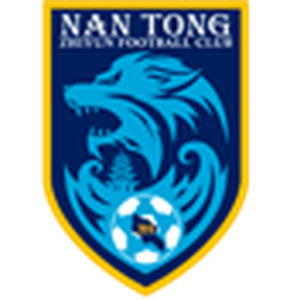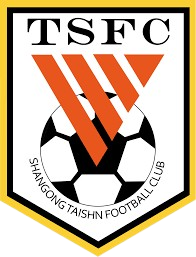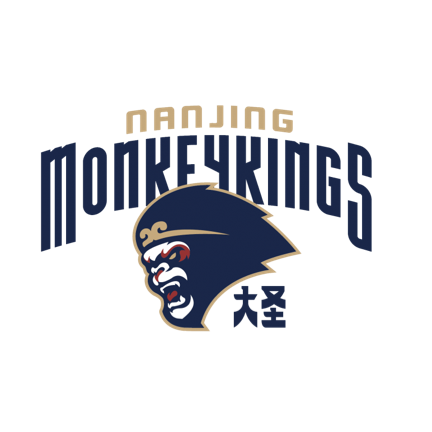同济大学
医学菁英分论坛
诚邀天下英才
申报海外优青
只等你来!
论坛简介
同济大学医学菁英分论坛是在“同济大学第十届国际青年学者论坛”框架下举办的重要活动,由同济大学医学院主办,多家附属医院参与支持。论坛聚焦但不限于以下领域:脑与脊髓、心血管疾病、癌症基础与转化、免疫学、干细胞、公共卫生、护理学、药学、生物医学工程、智能医学工程、康复医学工程等议题,凝聚海内外生命医学领域的青年才俊,共同探讨国际科技前沿话题,开拓学术视野,促进交流合作。
学院简介
1907年,德国医生埃里希·宝隆在上海创办“德文医学堂”,是同济大学的前身,也是同济医学专业的开端。20世纪50年代,在全国高等学校院系布局调整中,医学院整体迁出至武汉,但同济人医学情结至深,历经百年沧桑后,同济大学在新世纪之初重建医学。2000年4月,同济大学与原上海铁道大学合并,在原上海铁道大学医学院的基础上恢复设立了“同济大学医学院”。
经过快速发展,医学学科的整体水平已跻身全国医学院校前10%。2022年进入教育部直属优质医学院校名单(共18所院校入选)。同济大学医科连续3年稳居中国大陆前12位。2022年泰晤士高等教育中国学科评级中,各学科优势显著:生物医学工程A,药学A,临床医学A-,基础医学A-,护理学B+。2022年临床医学学科首次进入ESI全球前1‰,8个医学相关学科进入ESI全球前1% (世界前沿学科)。康复物理治疗专业2021年入选国家一流本科专业建设点,在2022“软科中国大学专业排名”中专业等级A+。
平台简介
十三五以来,医学院新增1个全国重点实验室、2个基础科学中心、1个国家重大科技基础设施、1个国家创新引智基地、3个教育部重点实验室等14个重大科技平台。形成了活跃、严谨、浓厚的学术氛围。近五年来累计获批纵向科研项目合计1324项(国家级项目占比87%)、科研经费合计9.3亿元。荣获国家科技进步二等奖6项,省部级自然科学奖、科技进步奖、技术发明奖、科学技术普及一等奖等近21项。一年以来在Nature、Cell、New England Journal of Medicine等期刊连续发表7篇顶级学术论文。
2020年,学校在复兴同济医科的道路上做出重大布局,将同济大学沪西校区400余亩土地划归医学发展使用,促进医学院及附属医院在产学研、医教研融合创新发展。2021年,学校投入近3亿,改造修缮科研实验室、实验动物中心及生活体育设施空间2万余平方米。2023年医学院整体搬迁至沪西同济医学园区,未来沪西将建设成为在国际上具有较高影响力的医学教育培训的高地,医学科学创新的高地,医工交叉创新高地,区域融合产学研转化高地。同时,与市区两级政府深入合作,打造“一核、一城、一岸”,即以同济大学医学院为辐射源,打造生命健康策源核,成为国内一流的环同济国家生物医药产业园区,并同步带动建设TOP智创城、苏河生命水岸,初步形成超百亿级环同济医学园区经济圈。
同济大学附属医院
附属第十人民医院、附属同济医院、附属东方医院、附属上海市肺科医院、附属第一妇婴保健院、附属杨浦医院、附属养志康复医院、附属皮肤病医院、附属上海市第四人民医院、附属精神卫生中心、附属普陀人民医院
同济大学医学院网址
https://med.tongji.edu.cn/index.htm

2025年国家自然科学基金委“优秀青年科学基金项目(海外)”即将正式启动,我们热切期盼海内外青年学者参与本论坛,并依托同济大学医学院进行2025年海外优青项目申报!
1
项目定位
优秀青年科学基金项目(海外)旨在吸引和鼓励在自然科学、工程技术等方面已取得较好成绩的海外优秀青年学者(含非华裔外籍人才)回国(来华)工作,自主选择研究方向开展创新性研究,促进青年科学技术人才的快速成长,培养一批有望进入世界科技前沿的优秀学术骨干,为科技强国建设贡献力量。
2
待遇保障
✓聘任岗位
评聘长聘教职、博士生导师。
✓薪酬待遇
提供具有竞争力的薪酬;另享受教学津贴、科研绩效及高水平成果奖励。优秀对口的医科研究人才,可获得附属医院的附加薪酬。
✓个人补贴
享受国家、上海市、大学及附属医院提供的相应生活补助共计400万元以上。
✓科研经费
200-600万(国拨经费100-300万,学校按照国拨经费1:1配套);优秀对口的医科研究人才,可支持获得附属医院的附加科研启动费,一事一议;科研经费最高可达800万元。
✓办公设备
学院提供必需的办公、实验用房,在团队建设、重大科研项目申请等方面给予倾斜支持。
✓住房保障
提供周转人才公寓,同时协助申请上海市其他人才公寓住房。
✓入学医疗
办理上海市户口享受人才通道,依托市级人才政策及附属学校协调解决子女入学入托,提供附属医院贴心医疗服务保障。
✓招生
优先支持博士生和硕士生招生额度。
✓团队
提供5名学校资助博士后招收指标。
✓申报辅导
提供贴心一站式服务,校院多级精细化有组织申报辅导,申报全程专业政策咨询。
3
报名条件
1.遵守中华人民共和国法律法规,具有良好的科学道德,自觉践行新时代科学家精神;
2.出生日期在1985年1月1日(含)以后;
3.具有博士学位;
4.研究方向主要为自然科学、工程技术等;
5.在2025年4月15日前,一般应在海外高校、科研机构、企业研发机构获得正式教学或者科研职位,且具有连续36个月以上工作经历;在海外取得博士学位且业绩特别突出的,可适当放宽工作年限要求;
6.取得同行专家认可的科研或技术等成果,且具有成为该领域学术带头人或杰出人才的发展潜力;
7.申请人尚未全职回国(来华)工作,或者2024年1月1日以后回国(来华)工作。获资助通知后须辞去海外工作或在海外无工作,全职回国(来华)工作不少于3年。
4
论坛举办
举办时间:
2024年12月21日-2024年12月22日
举办方式:
线上线下同步举行,欢迎线下参观交流。
5
报名方式
方式1
投递简历请选择:同济大学医学院
简历投递方式(可选任一):
1. 扫描二维码投递简历;
3. 点击链接投递简历:https://jinshuju.net/f/ZqXwZt(复制链接至浏览器投递简历)
方式2
同济大学医学院公众号直达报名
报名截止时间
2024年12月15日 12:00
心脏病学创新中心
State Key Laboratory of Cardiovascular Diseases and Medical Innovation Center
滑动查看中英文介绍
Swipe to view Chinese and English introduction
心脏病全国重点实验室、同济大学医学院心脏中心围绕心脏病的源头机制和瓶颈技术等重大科学问题,重点开展心律失常关键机制研究、心律失常防治新技术研究、心律失常干预靶点研究和心律失常原创药物研究。旨在打造全球心脏病学“理论策源地”和“技术创新中心”,构建心脏病学领域最高层次医学创新平台,荟萃世界一流研究和开发团队,为人类健康事业奉献原始创新型研究成果。
研究团队已获批多项国家及省部级重要基地平台建设包括:心脏病全国重点实验室、国家基础科学中心(重大心脏病)、心血管疾病国家临床重点专科、国家卫健委冠心病、心律失常和结构性心脏病介入培训基地、心血管内科国家药物临床试验机构、国家重大疾病学科创新引智基地、上海市重中之重研究中心(心律失常)、上海市心力衰竭研究中心、教育部细胞干性与命运编辑前沿科学中心和国家干细胞转化资源库等。
实验室拥有包括陈义汉院士等在内的多位战略科学家、40多位国家级中青年杰出人才、200多位固定研究人员和200位流动人员组成的心脏病交叉研究队伍。多年来,团队在Nature、Science、Cell及其子刊等国际高水平期刊发表科研论文多篇。
State Key Laboratory of Cardiovascular Diseases and Medical Innovation Center,and Clinical Center for Heart Disease Research of Tongji University focus on major scientific issues such as the underlying mechanisms and bottleneck technologies of heart diseases. Primary research areas include the key mechanisms of arrhythmias, the development of new technologies for arrhythmia prevention and treatment, the exploration of therapeutic targets for arrhythmia intervention, and the research of novel drugs for arrhythmias. The aim is to establish a globally recognized "theoretical origin" and "technological innovation center" in cardiology, constructing the highest-level medical innovation platform in the field of cardiovascular research, bringing together world-class research and development teams to contribute original, innovative research results to human health.
The research team has been approved for several national and provincial key platform constructions, including: the National Key Laboratory of Cardiovascular Diseases, the National Center for Basic Sciences (Major Cardiovascular Diseases), the National Clinical Key Specialty for Cardiovascular Diseases, the National Health Commission's Coronary Heart Disease, Arrhythmia, and Structural Heart Disease Interventional Training Base, the National Drug Clinical Trial Institute for Cardiovascular Medicine, the National Center for Innovative Intelligence in Major Disease Disciplines, the Shanghai Key Research Center for Arrhythmias, the Shanghai Heart Failure Research Center, the Ministry of Education's Frontier Science Center for Stem Cell Potency and Fate Editing, and the National Stem Cell Transformation Resource Bank.
The laboratory includes several strategic scientists such as Academician Chen Yihan, over 40 nationally recognized outstanding young and middle-aged talents, more than 200 permanent researchers, and 200 visiting scholars, forming a cross-disciplinary research team focused on cardiovascular diseases. Over the years, the team has published numerous high-impact research papers in internationally renowned journals such as Nature, Science, Cell, and their sub-journals.
脑与脊髓临床研究中心
Clinical Center for Brain and Spinal Cord Research
滑动查看中英文介绍
Swipe to view Chinese and English introduction
同济大学脑与脊髓临床研究中心成立于2017年12月,是同济大学六大临床研究中心之一,依托同济大学医学院及附属医院管理及建设。现任主任为同济大学医学院院长、欧洲科学院院士郑加麟教授。
为对接国家脑计划,提升同济大学脑与类脑科学研究水平,发挥一流学科引领作用,中心建立了以重大脑疾病为导向的脑科学交叉平台,脑科学“基础-临床-人工智能交叉”研究体系,卓越脑科学及交叉学科人才培养体系等。中心利用学科传统优势,统筹课程体系,改革人才培养模式,加强医工交叉,重视基础与临床转化,培养卓越医学与脑科学复合拔尖创新人才。积极参与国际脑计划战略合作,成立中瑞合作实验室,邀请国内外神经领域专家定期学术交流,打造一流的学术高地,以一流管理服务为一流学科建设赋能。
中心研究方向涵盖脑科学基础科研及临床转化、脑科学与人工智能交叉、脊髓损伤及修复、临床神经病学及疾病早期诊断,麻醉与脑功能等。中心科研机构包括教育部脑衰老相关疾病医药基础研究创新中心、同济大学脊柱脊髓损伤再生修复教育部重点实验室、上海市麻醉与脑功能调控重点实验室、同济大学“脑智同飞”联合研究中心、同济大学医学院人体解剖与组织胚胎学系、脑与类脑功能转化研究所及中德脑科学中心等。
中心建立了同济大学脑与脊髓临床研究中心冠名研究员岗位制度;成立至今,已汇聚包括中国科学院院士、欧洲科学院院士、欧洲科学与艺术院院士、德国国家科学院院士、诺贝尔生理学或医学奖获得者、国家杰青、长江、国家重点引进人才工程专家及“四青”人才等骨干在内的多学科交叉脑科学基础与临床科研团队。近五年来,同济大学脑科学团队已在Nature、Cell等国际著名学术期刊发表论文近30篇;获得科技部重点研发计划10余项,国家重大专项、国家自然科学基金重点专项、国际合作重大项目近10项,在研国家自然科学基金项目近70余项;围绕脑科学领域多次获得省部级奖励。
Clinical Center for Brain and Spinal Cord Research of Tongji University was established in December 2017 and is one of the six major clinical research centers of Tongji University. It is managed by Tongji University School of Medicine. The current director is Professor Zheng Jialin, Dean of Tongji University School of Medicine, academic member of the European Academy of Sciences.
To elevate the research level of neuroscience and brain research of Tongji University, the center has established a cross-disciplinary research platform for major brain diseases, a research innovation system covering basic research, clinical research, and artificial intelligence, and the training system for excellent brain science and interdisciplinary talents. The center takes the advantages of traditional disciplines, constructs high level curriculum system, reforms the training program, strengthens the intersection of medicine and engineering, highlights the transformative medicine, and cultivates innovative talents expertizing in medicine and neuroscience. The center joined and is contributing to the International Brain Initiative, established the Sino-Swiss Laboratory, invites experts in the field of neurology for academic communications, creates a first-class academic atmosphere and services to facilitate the first-class research.
The research direction of the center contains basic neuroscience research and clinical translation, the intersection of neuroscience and artificial intelligence, spinal cord injury and repair, clinical neurology and early diagnosis of diseases, anesthesia and brain function, etc. The center includes multiple institutions, such as, the Medical Basic Research Innovation Center for Brain Aging and Related Diseases of the Ministry of Education, the Key Laboratory of Spinal Cord Injury Regeneration and Repair of Tongji University, the Shanghai Key Laboratory of Anesthesia and Brain Function Regulation, the Tongji University-iFlytek Joint Research Center, the Department of Human Anatomy and Embryology of Tongji University School of Medicine, Translational Research Institute of Brain and Brain-Like Intelligence, and the Sino-German Brain Research Center.
The center has gathered experts from basic and clinical research in neuroscience. In the past five years, the neuroscience team at Tongji University has published about 30 articles in high impact journals such as Nature and Cell. The center has been granted with National Program on Key Basic Research Projects, National Natural Science Foundation of China (General Program; Key Program; Major Program), and National Science Funds for Distinguished Young Scholars. The center received multiple National awards in the field of neuroscience.
癌症中心
Cancer Center
滑动查看中英文介绍
Swipe to view Chinese and English introduction
同济大学癌症中心于2017年5月正式揭牌成立,该中心是同济大学“十三五”建设“双一流”大学医学口三个重点建设项目之一,依托同济大学医学院和第十人民医院、肺科医院等我校各附属医院,整合现有的肿瘤临床、基础、转化研究团队,充分发挥同济医工结合优势,力争建设成为国内集临床与科研为一体、以临床为核心的具有特色和影响力的国内一流、世界知名的癌症中心。
癌症中心致力于肿瘤微环境基础与转化研究,包括肿瘤发生发展机制和转化,肿瘤代谢和免疫微环境机制研究及靶向,肿瘤治疗新靶点筛选及生物免疫治疗临床转化等。近年来,中心所属基础和临床团队在JAMA、Cell、Nature、Cancer Cell、Cell Research、Nature Communications、Developmental Cell等国际知名期刊上发表重要学术论文360余篇,10分以上论文100余篇;申请或授权专利60余项,科研转化成果1600万余;承担国家重点研发计划、科技部重大研究计划、国自然基金、上海市自然科学基金等课题百余项;并获得教育部科学技术进步一等奖、中华医学科技三等奖、上海市科学技术奖科技进步奖一等奖、高校科学研究成果自然科学奖一等奖多个科技奖项。
癌症中心重视人才队伍建设,由国家杰青、长江学者、科技部领军人才、“万人计划”获得者等优秀学科带头人领衔,先后引进和培养出国家杰青、优青、青年长江、上海市千人、启明星人才、新优青、扬帆计划获得者和超级博士后等,培养的研究生也多次获得国家奖学金、优秀毕业生等荣誉;同时积极探索国际合作,与美国纪念斯隆凯特琳癌症中心、安德森癌症中心、法国里昂高师、日本、德国等多所重点高校合作,拿到国家自然科学基金国际交流合作项目、上海市国际交流合作项目等。
The Cancer Center of Tongji University was officially inaugurated in May2017. This center is one of the key construction projects for the establishment of a "Double First-Class" medical university during the13th Five-Year Plan of Tongji University. It relies on the Tongji University School of Medicine and affiliated hospitals such as the Tenth People’s Hospital and the Pulmonary Hospital to integrate existing teams for clinical, basic, and translational cancer research. The center aims to leverage Tongji’s strengths in the integration of medicine and engineering, striving to become a leading cancer center in China that integrates clinical practice and research, with a focus on clinical care and a distinctive and influential presence recognized worldwide.
The Cancer Center is dedicated to foundational and translational research on the tumor microenvironment, including the mechanisms and translation of tumor development, tumor metabolism, and the immune microenvironment mechanisms as well as targeted therapies. It also focuses on screening new therapeutic targets for tumors and clinical translation of biological immunotherapies. In recent years, the center's basic and clinical teams have published over360 significant academic papers in prestigious international journals such as JAMA, Cell, Nature, Cancer Cell, Cell Research, Nature Communications, and Developmental Cell, including more than100 papers with an Impact Factor above10. Additionally, they have applied for or been granted over60 patents and achieved more than16 million in research translation results. The center has undertaken more than100 projects, including those from the National Key R&D Program, the Ministry of Science and Technology’s major research projects, the National Natural Science Foundation, and the Shanghai Natural Science Fund. It has also received multiple science and technology awards, including the First Prize of Scientific and Technological Progress from the Ministry of Education, the Third Prize of Chinese Medical Science and Technology, the First Prize of the Shanghai Science and Technology Progress Award, and the First Prize of the Natural Science Award for University Research Achievements.
The Cancer Center places great emphasis on talent development, led by outstanding academic leaders such as National Outstanding Young Scholars, Yangtze River Scholars, leading talents from the Ministry of Science and Technology, and recipients of the "Ten Thousand Talents Program." It has successively introduced and trained National Outstanding Young Scholars, Excellent Young Scientists, Young Yangtze River Scholars, Shanghai Thousand Talent Plan experts, Rising Stars, New Excellent Young Scholars, winners of the Sailing Plan, and Super Postdoctoral Fellows. Graduate students trained at the center have also received numerous honors, including National Scholarships and titles of Outstanding Graduates. Simultaneously, the center actively explores international collaborations with notable institutions such as the Memorial Sloan Kettering Cancer Center and the MD Anderson Cancer Center in the United States, as well as with key universities in France, Japan, and Germany. This has resulted in successful applications for international exchange and cooperation projects from the National Natural Science Foundation and the Shanghai International Exchange and Cooperation Project.
干细胞研究中心
Stem Cell Research Center
滑动查看中英文介绍
Swipe to view Chinese and English introduction
干细胞研究中心成立于2009年,经过十余年的发展,现已发展成为一支拥有4名国家级人才团队和14名PI团队、160余人组成的集基础研究、转化研究和临床研究为一体的全链条研究基地。中心聚焦干细胞与胚胎发育、干细胞与模式动物、干细胞与组织器官再生三大研究方向,并取得系列国际领先研究成果:1)利用微量组学方法揭示了胚胎发育和干细胞静息与激活机制;2)建立了在体细胞重编程方法并揭示了细胞命运转换关键调控机制;3)利用基因编辑手段建立了非人灵长类大动物疾病模型;4)在细胞和器官同种异体移植通用型方面建立了具有我国自主知识产权的技术手段;5)在国际上率先开展了有关慢性堵塞性肺病等疾病的细胞移植临床研究和移植产品研发。
干细胞研究中心围绕上述方向,持续打造高水平人才梯队,希望在神经、肺、皮肤与毛囊、骨关节、肝脏等干细胞与再生方向引进中外青年人才,在现有科技部中美干细胞研究中心和教育部重点实验室的基础上,形成学科高峰。
The Stem Cell Research Center was established in 2009 and has developed over a decade into a comprehensive center with the study of basic, translational, and clinical research of stem cells. It consists of a team of 4 national high-level talents and 14 principal investigators, with a total of over 160 members. The center focuses on three major research directions: stem cells and embryonic development, stem cells and model animals, stem cells and tissue and organ regeneration as well. It has achieved a series of internationally leading research results: 1) Revealed the mechanisms of embryonic development and stem cell quiescence and activation through micro-omics methods; 2) Established in vivo cell reprogramming methods and revealed key regulatory mechanisms of cell fate conversion; 3) Created non-human primate large animal disease models using gene editing techniques; 4) Established the technology with independent intellectual property rights in China for universal allogeneic cell and organ transplantation; 5) Pioneered clinical research and product development for cell transplantation in diseases such as chronic obstructive pulmonary disease.
The Stem Cell Research Center is committed to continuously building a high-level talent echelon around these directions, aiming to attract young talents from both home and abroad in the fields of stem cells and regeneration related to the nervous system, lungs, skin and hair follicles, bone and joints, liver, etc. Based on the existing Ministry of Science and Technology approved China US Research Center for Stem Cell and the Ministry of Education Key Laboratory, we seek to form a peak of academic disciplines.
感染与免疫研究中心
Research Center for Infection and Immunity
滑动查看中英文介绍
Swipe to view Chinese and English introduction
同济大学感染与免疫研究中心是同济大学六大临床研究中心之一,由病原体与宿主相互作用教育部重点实验室、同济大学传染病与疫苗研究所和免疫学与病原生物学系组成。聚焦三个主要研究方向:①病原体感染与宿主相互作用的机制研究;②病原体感染促进其他疾病发生发展的临床研究;③病原体感染新型诊断技术、免疫治疗策略和药物研发。
研究中心依托同济大学医学院并整合附属第十人民医院、附属肺科医院、附属东方医院和附属皮肤病医院优势临床学科群。拥有先进的检测分析设备和仪器平台。研究团队由多位杰出学者组成,包括教育部长江学者、国家基金委杰青、国家万人和国家基金委优青,承担国家级项目40项,其中国家重大、重点项目14项;并取得了一系列重要原创成果,在国际刊物发表论文129篇,包括Nature、Nature Immunology、Cell Host & Microbe、Nature Microbiology等影响因子10以上刊物论文17篇。获得教育部自然科学奖2项。
The Research Center for Infection and Immunity is one of the six major clinical research centers of Tongji University. It consists of the Key Laboratory of Pathogen-Host Interaction of the Ministry of Education, the Institute for Infectious Diseases and Vaccine Development of Tongji University, and the Department of Immunology and Pathogen Biology. It focuses on three main research directions: ① the mechanism of pathogen infection and host interaction; ②clinical research on how pathogen infections promote the occurrence and development of other diseases; ③ new diagnostic technologies for pathogen infection, immunotherapy strategies, and drug research and development.
The research center relies on the Tongji University School of Medicine and integrates the advantageous clinical disciplines of the Affiliated Tenth People's Hospital, Affiliated Pulmonary Hospital, Affiliated Dongfang Hospital, and Affiliated Dermatology Hospital. It possesses advanced detection and analysis equipment and instrument platforms. The research team is composed of many outstanding scholars, including Changjiang Scholars of the Ministry of Education, The National Science Fund for Distinguished Young Scholars, National Ten Thousand Talents Program scholars, and the National Science Fund for Excellent Young Scholars. They have undertaken 40 national-level projects, including 14 major and key projects, and have achieved a series of important original results, publishing 129 papers in international journals, including 17 papers in journals with an impact factor of over 10, such as Nature, Nature Immunology, Cell Host & Microbe, and Nature Microbiology. They have also received two Natural Science Awards from the Ministry of Education.
生物医学工程与纳米科学学院
Institute of Biomedical Engineering and Nanosciences
滑动查看中英文介绍
Swipe to view Chinese and English introduction
同济大学医学院生物医学工程与纳米科学学院成立于2008年8月,学院以培养具有国际视野、原始创新、德才兼备的创新人才为目标,以服务国家大健康战略和临床为导向,聚焦重大疾病的新型靶点开发、生物材料诊疗、医学影像诊断及康复仪器研制,开展全方位生物医学工程与纳米科学前沿交叉研究。
学院目前拥有生物医学工程一级硕士学位授予点及生物与医药工程博士学位授予点,设置“生物材料与催化医学”、“精准医学与系统生物学”、“生物医学影像工程”及“智能康复与医疗设备”四个研究方向,以国家基础科学研究中心、脊柱脊髓损伤再生修复教育部重点实验室、干细胞与重大疾病学科创新引智基地、上海市超声诊疗工程技术研究中心、上海市催化医学前沿科学研究基地、上海市残联智能康复辅具与技术重点实验室等平台为抓手大力推动生物医学工程学科发展。在2023年泰晤士高等教育中国学科评级中,同济大学生物医学工程评级为A-级。
学院现有一支28人的多学科交叉特色的专任教学科研团队,其中包含中科院院士1名、国家杰青2名、国家优青(含海外)4名,具有副高及以上职称20人,副高及以上专任教师中具有博士学位的比例为100%。学院现任院长为中国科学院院士、无机化学家施剑林教授。学院近年来获批多项科技部国家重点研发计划、科技部重点研发计划政府间国际合作重点专项、国自然优秀青年基金、国自然面上项目、国自然青年基金、上海市基础研究特区计划、上海市教委科研创新计划自然科学重大项目等。在Nature Nanotechnology, Nature Communications, JACS, Science Advances, Advanced Materials等国际高水平学术期刊发表论文200余篇,申请/授权国家发明专利60余项,实现10余项科研成果转化,转化金额超千万,带来直接/间接经济效益数千万元,牵头建立行业团体标准2项。
The Institute of Biomedical Engineering and Nanosciences, School of Medicine, Tongji University was established in August 2008. The institute aims to cultivate innovative talents with international vision, innovations, moral integrity, and professional competence. We serve the national health initiative and clinical demands by focusing on the development of novel biomarkers, biomaterials-based therapeutics, medical imaging diagnosis, and rehabilitation instruments for major diseases.
Currently, the institute offers a first-class master's degree program in Biomedical Engineering and a doctoral degree program in Biology and Medicine. The research directions include "Biomaterials and Catalytic Medicine," "Precision Medicine and Systems Biology," "Biomedical Imaging Engineering," and "Intelligent Rehabilitation and Medical Equipment." The institute has excellent research platforms including the National Basic Science Research Center, the Key Laboratory of Spine and Spinal cord Injury Repair and Regeneration (Ministry of Education), the Discipline Innovation Base for Stem Cells and Major Diseases, the Shanghai Engineering Technology Research Center for Ultrasonic Diagnosis and Treatment, the Shanghai Frontier Science Research Center for Catalytic Medicine, and the Key Laboratory of Intelligent Rehabilitation Aids and Technology of the Shanghai Disabled Persons' Federation. In the 2023 Times Higher Education China Subject Ratings, Tongji University's Biomedical Engineering was rated A-.
The institute currently has 28 staff with multidisciplinary backgrounds, including 1 academician of the Chinese Academy of Sciences, 2 National Distinguished Youth Scholars, and 4 National Excellent Youth Scholars. The dean of the institute is Professor Jianlin Shi, an academician of the Chinese Academy of Sciences. In recent years, the institute has been awarded numerous national projects including key research and development plans from the Ministry of Science and Technology, key special projects of government international cooperation, the National Natural Science Foundation of China (NSFC) Excellent Youth Scholars, NSFC General Projects, NSFC Youth Fund, Shanghai Basic Research Special Zone Program, and Scientific Research Innovation Plan for Natural Science Major Projects of Shanghai Municipal. The researchers of the institute have published over 200 papers in high-level international academic journals such as Nature Nanotechnology, Nature Communications, JACS, Science Advances, and Advanced Materials. Over 60 national invention patents have been filed. More than 10 items of scientific findings were commercialized, generating direct and indirect economic benefits worth more than tens of millions of CNY. Two items of industrial standards have been initiated to be established.
公共卫生与全科学院
Public Health and General Medicine College
滑动查看中英文介绍
Swipe to view Chinese and English introduction
同济大学医学院公共卫生与全科学院致力于培养国家公共卫生事业的栋梁和专业精英。学院目前拥有973项目科学家、国家重点研发计划负责人、国家基金委杰出青年和海外优青、国家级省部级专业学会主委等高层次学科领军人才,逐步建成流行病学、临床医学、计算机科学、人工智能、生物遗传学和生物信息学等多学科交叉的研究团队。学院致力于以多学科交叉和健康医疗大数据为特色的覆盖疾病“发生-诊断-复发-生存-管理”全过程的精准医学研究。
目前重点研究方向主要聚焦于以下两个:
(1)健康大数据科学:建设及管理健康大数据平台,以大数据为基础,循证医学为证据,人工智能为工具,对神经精神障碍疾病、心脑血管、癌症及其他主要慢性病开展精准的预测、预防、诊断、和治疗;
(2)人群遗传与精准医学:重大遗传性出生缺陷疾病的遗传与分子机制、出生缺陷疾病动物模型与治疗策略研究。
Tongji University School of Medicine's Public Health and General Medicine College is dedicated to cultivating the pillars and professional elites of the national public health sector. The college currently boasts high-level disciplinary leaders, including scientists from the 973 Program, heads of national key research and development projects, outstanding young scholars recognized by the National Natural Science Foundation, and chairs of national and provincial professional societies. It is gradually establishing interdisciplinary research teams in epidemiology, clinical medicine, computer science, artificial intelligence, genetics, and bioinformatics. The college focuses on precision medicine research that covers the entire process of disease "occurrence-diagnosis-recurrence-survival-management" characterized by interdisciplinary collaboration and health care big data.
Our current key research directions mainly focus on the following two areas:
(1) Health Big Data Science: Building and managing a health big data platform that utilizes big data as the foundation, evidence-based medicine as the proof, and artificial intelligence as the tool to conduct precise predictions, prevention, diagnosis, and treatment of neuropsychiatric disorders, cardiovascular diseases, cancers, and other major chronic diseases.
(2) Population Genetics and Precision Medicine: Researching the genetic and molecular mechanisms of significant hereditary birth defect diseases, as well as developing animal models and treatment strategies for these birth defects.
学院将组织专家对报名信息进行评估,邀请符合学院战略发展需求的学者参会,同时根据受邀者情况推荐申请大学以下职位:
1
青年百人计划
(1) 青年百人计划A岗
✓基本条件:
在所从事研究的学科领域中取得高水平科研成果,有突出的学术创新能力和发展潜力,学术成果达到国家级高层次青年人才同等水平。具有博士学位,年龄一般不超过40周岁。聘期内全职在岗工作且与同济大学签订聘用合同。
✓支持政策:
1.聘任为长聘教职;
2.提供具有竞争力的薪酬;
3.为引进的青百受聘学者提供启动经费和一次性补助;
4.所在学院提供必需的办公和科研用房,在团队建设、研究生招生、重大科研项目申请等方面给予充分支持;
5.提供良好的医疗保健服务。
(2) 青年百人计划B岗
✓基本条件:
在所从事研究的学科领域取得高水平科研成果,有较强的学术创新能力和冲击国家级高层次青年人才计划的水平,具备团队合作精神。具有博士学位,年龄一般不超过35周岁。聘期内全职到岗工作且与同济大学签订聘用合同。
✓支持政策:
1.聘任为特聘研究员;
2.提供具有竞争力的薪酬;
3.为引进的青百受聘学者提供启动经费和住房补助;
4.所在学院提供必需的办公和科研用房,在团队建设、研究生招生、重大科研项目申请等方面给予充分支持;
5.提供良好的医疗保健服务。
2
长聘教职体系
(1) 长聘教授
✓基本条件:
申请人应活跃在教学科研第一线,取得国际同行认可的突出学术成就,具有很高的国际知名度和影响力,在教学和研究生培养方面表现优秀并取得重要成果,在所在院系的学科建设中起到重要作用,达到世界一流大学(学科)终身教授的水平。应具有博士学位,年龄原则上不超过45周岁。
✓支持政策:
1.提供具有竞争力的薪酬。
2.所在学院提供必需的办公和科研用房,并在团队建设、研究生招生、重大科研项目申请等方面给予优先支持;
3.提供良好的医疗保健服务。
(2) 预聘副教授
✓基本条件:
申请人具备良好的教学能力,在研究方面已取得具有原创性和重要性的研究成果和良好发展潜力,在领域内有一定的知名度和影响力。应具有博士学位,年龄原则上不超过40周岁。
✓支持政策:
1.提供具有竞争力的薪酬。
2.所在学院提供必需的办公和科研用房,并在团队建设、研究生招生、重大科研项目申请等方面给予支持;
3.提供良好的医疗保健服务。
(3) 预聘助理教授
✓基本条件:
申请人具有良好的学术能力,较强的创新活力和学术发展潜力。应具有博士学位,原则上要有博士后经历或相应的科研工作经历,年龄一般不超过35周岁。
✓支持政策:
1.提供具有竞争力的薪酬。
2.所在学院提供必需的办公和科研用房,并在研究生招生、重大科研项目申请等方面给予支持;
3.提供良好的医疗保健服务。
3
联系人
来源:医学院人事人才办公室
辞旧迎新!同济大学医学院重磅发布2023年度发展报告!
2024-02-09
同济大学附属医院发展与人事人才工作会议召开,推动医科与其他学科交叉融合发展
2024-07-11
同医
精诚济世
明道致远

更多内容敬请关注
















































































































































